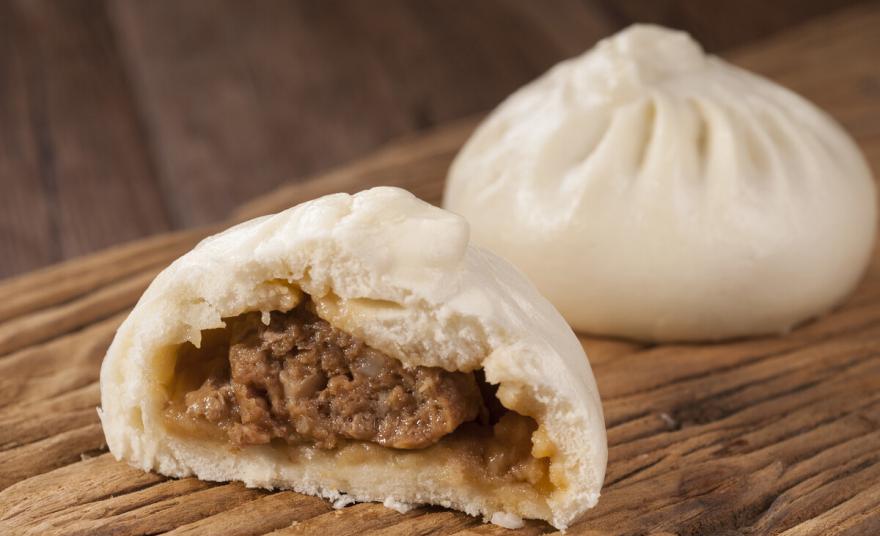Tianjin is known on the Internet as "Erdu". But in addition to the cross-talk music art, when it comes to the impression of Tianjin, the people of the whole country will invariably think of a traditional pasta - buns!

Twenty years ago, a sketch by Feng Gong and Guo Donglin at the Spring Festival Gala made Tianjin's buns popular all over the country. The meaning of buns for Tianjin people is what hot pot is to Chongqing.
Eat buns, do not need to red tape, do not pay attention to seasonal seasons. When you are hungry, you will eat half a pound when you are very hungry. This is a kind of food integrated into the character of the city, reflecting the attitude of Tianjin boys and sisters to daily casualness and humor.
"There's nothing a bun can't solve! If there is, then the music is not OK! ”
Tianjin people are mouthy, and they naturally have high standards and strict requirements for buns. It's not hard to make buns, but it's hard to make them well. The bun shops on the streets of Tianjin come and go like hurried passers-by, and it is rare to be able to support the tastes of a generation.
What really represents the image and connotation of Tianjin buns are those old-fashioned buns. Time cannot dilute the steaming aroma of buns, and people still entrust their taste buds to it despite the changes of time.
Tongyi Cheng Bun was founded in 1776, the earliest is the famous sauce meat shop. Later, the store pioneered and innovated, trying to wrap its own sauce meat into a filling and wrap it into a bun. Unexpectedly, the sauce meat bun was a great success, and the same meaning simply changed his career to start a bun shop. #西青非遗迹 #
In 1946, He Dongyou, known as the "King of Buns", came to his grandfather's family as an apprentice in the Tongyi Cheng Bun Shop. In 1956, He Dongyou became the inheritor of the tongyi bun technique. Today, He Dong's tongyin bun craft has been handed over to the fourth generation of heirs, He Junqiang. A hundred years later, Tongyi Chengbaozi still inherits the ancient handmade techniques of that year, and strives to be authentic.
The "tongyi" bun is made from a selection of fine pork belly with the finest pork belly, supplemented by the finest sauce. Simmer in an iron pot, cut into small pieces, add the chilan and watercress sauce, noodle sauce, pour in the pork bone broth, stir well together. The sauce is served with bone broth to make the bun filling more layered. The water filling is accompanied by a semi-fermented dough crust, and the bun crust also absorbs part of the broth, making the taste more plump.
When the bun comes out of the pot, the rising aroma is the best sign. Synonymous with buns must be eaten hot, take a bite, and let the mellow soup flow freely in the mouth. The dough is soft and tender, and the filling is delicious. Perhaps many people think that making buns is a very simple thing, but to make it delicious, it really needs a century of old-fashioned efforts.
With the development of the times, Tongyicheng still adheres to the original intention, the pricing is also quite close to the people, and the traditional pork bun is more than one piece.
In 2011, Tongyi Cheng's bun making skills were selected as an intangible cultural heritage project in Xiqing District, but in the heart of He Junqiang, a descendant of Tongyi Cheng, the most concerned thing is to pass on this traditional Tianjin cuisine in Jingu.
Auspicious New Year's Eve, you may wish to also come synonymous with a hot bun. #哏儿都出道季 #
Not only can you taste the hot delicacy, but you can also taste the taste of Tianjin, which has been passed down for hundreds of years.
Text/Yan Peng
Editor-in-charge/celery picking
Image/From Figureworm